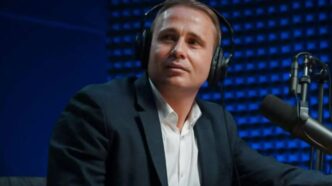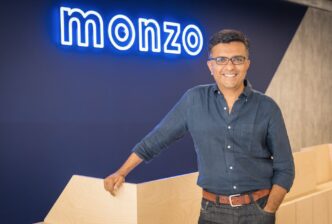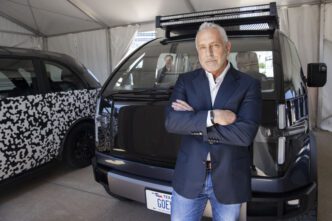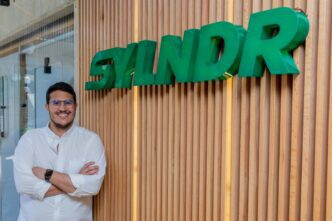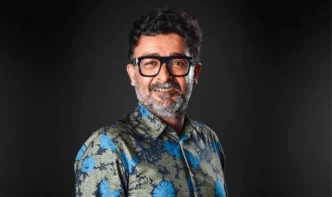Oskar Hartmann might just be the most connected angel investor you’ve never heard of—unless you scroll in Russian. The Kazakhstan-born, Germany-raised investor claims he’s the 18th most successful angel on the planet. While that’s hard to verify, one thing is clear: his social media reach dwarfs that of most in venture. Hartmann has over 500,000 followers on both YouTube and Instagram—more than twice that of well-known VC Harry Stebbings on YouTube.
Though many of his posts are in Russian, Hartmann’s investments are spread across Europe and increasingly beyond. He built his wealth by founding 20 startups over 25 years—half of which failed, he admits—and making early bets on unicorns like Flaschenpost, Auto1, and Sennder. Now based in Dubai, he’s shifting focus to the U.S. and gearing up for his next big venture: a fund for angels, built to protect and pool their wealth.
From Online Fashion to Billion-Dollar Bets
Hartmann’s early wins came from e-commerce. In 2008, he cofounded KupiVIP, a Russian fashion platform backed by Accel and Bessemer, which later shut down in 2021. He also cofounded Sapato, another fashion retailer that was acquired by Ozon for $60 million. But his biggest break came when he moved from operating to investing.
He backed Germany’s Flaschenpost with a €10 million cheque, helping the drinks delivery company scale before it was acquired by Dr. Oetker for €1 billion in 2020. Then came Auto1. “I was basically the first money in,” Hartmann says. The used car platform later IPO’d at a €12 billion valuation.
His deal flow is helped by strong roots in the WHU Otto Beisheim School of Management, Germany’s top startup-producing university. Founders of Rocket Internet, Zalando, Enpal, Flink, and Forto all studied there. “If I had said yes to every WHU intro, I’d have backed 25% of German unicorns,” he says. Still, he’s invested in 10% of them—about 30 companies, out of a 120-strong portfolio.
Hartmann typically writes $300K cheques but often goes bigger. His bets span food, logistics, climate tech, and fast delivery, with events like Brent Hoberman’s Founders Forum helping him keep a foot in the UK scene.
Building Accumulator: A Safety Net for Lonely Angels
After decades as a solo investor, Hartmann realized just how isolated angel investing can be. “You’re a lone ranger,” he says. “Unicorns are rare. It’s hard. And when one of your few big bets fails, it can destroy 80% of your portfolio.”
So, he built Accumulator, a U.S.-based fund that pools angel investor holdings into a shared pot. Angels contribute equity from successful startups like SpaceX, Figma, Discord, Notion, Monzo, Miro, and TravelPerk, and in return receive a slice of everyone else’s upside. “It spreads the risk. It’s about sharing the downside too,” Hartmann says.
So far, 43 angel investors have joined the fund. The long-term goal? A public listing—essentially creating a “private market ETF” so that anyone can invest in the most promising startups through a single vehicle.
German entrepreneur Roman Kirsch, who also found success in online fashion before turning investor, is helping Hartmann lead the effort. Together, they hope to redefine how angels manage liquidity in a market where IPOs are rare and exit timelines have stretched thin.
Hartmann’s mission now is to protect those who took the same risks he did. “Angel investors built this ecosystem,” he says. “They were there first. They deserve tools that make the journey less fragile.”
Beyond investing, Hartmann has made headlines for some truly unexpected achievements. In 2019, he set a world record for 100-meter sprint rowing in front of a stadium crowd in St. Petersburg. He also built what may be the world’s longest domino chain made entirely of books—an event you can still find online.
Next on his agenda: a move to the United States, where he hopes to deepen his focus on AI startups. But he’s not ditching Europe. If you’re looking to pitch him this summer, chances are you’ll catch him at Soho Farmhouse, mingling with founders at the next Founders Forum.
